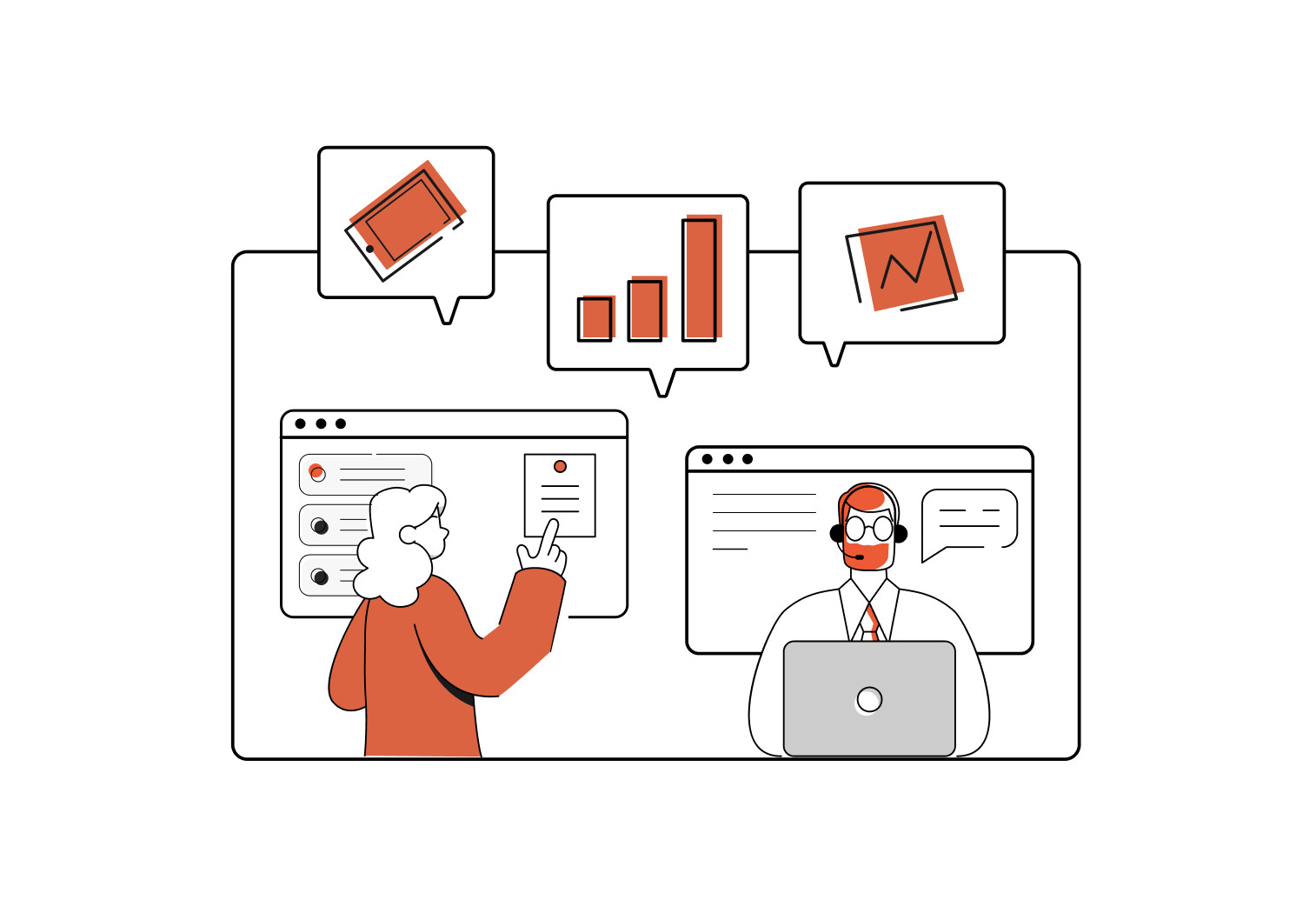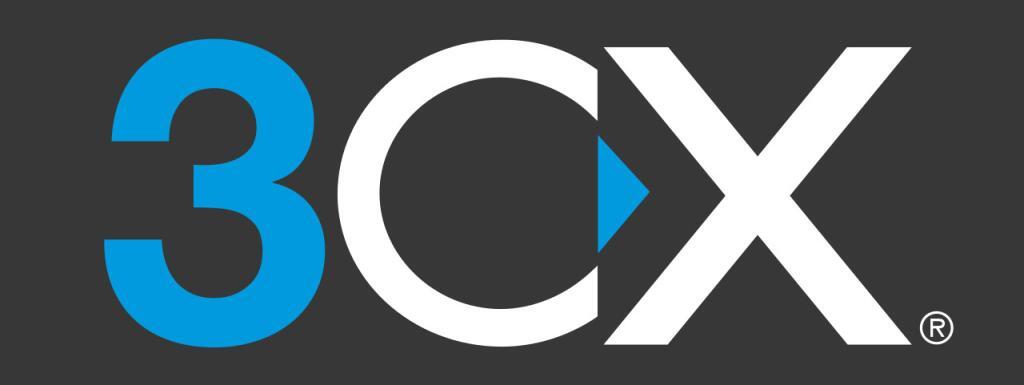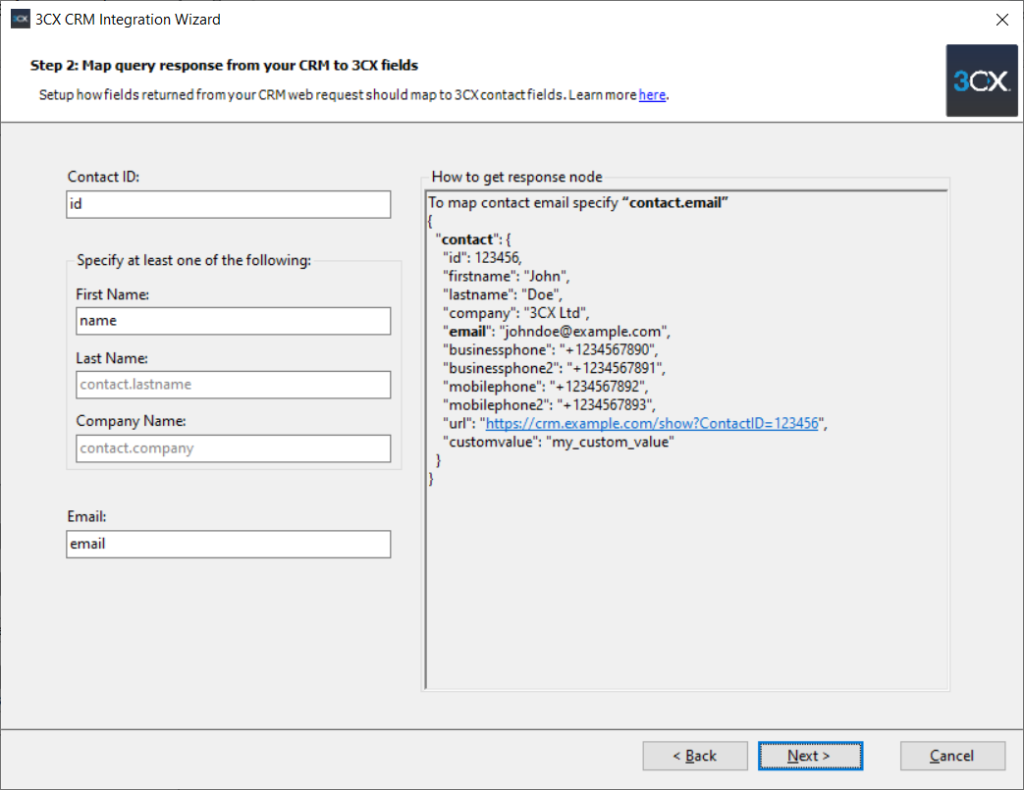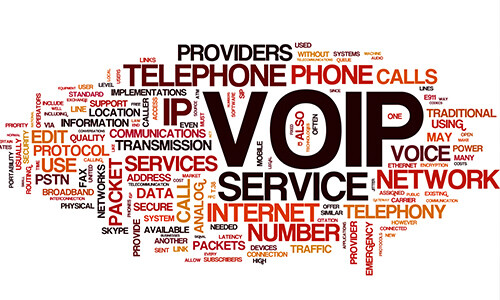In this article
When it was first introduced to Australia in 1995, Voice over Internet Protocol, or VoIP, was a revolutionary step in corporate communication. A modern alternative to traditional landlines, this internet protocol and virtual phone system empowered businesses to untether themselves from fixed, rigid copper phone line setups. With just a simple business internet connection, they could take advantage of the power, speed, and borderless nature of the burgeoning online world.
In the early years phone carriers were slow to act—but now, VoIP is considered the standard for business phone connections. And, while VoIP capabilities have improved significantly in recent years, despite this many businesses still may not be utilising their systems to their full capacity.
It’s all about the integrations between your VoIP phone system and your wider suite of business platforms. The most notable of these is your Customer Relationship Management (CRM) platform.
If your VoIP business phone system doesn’t have integration capabilities with your CRM platform, then you’re effectively doubling the workload on your teams, while also limiting the capacity to engage with your customers.
What is a VoIP CRM Integration?
If your VoIP business phone system doesn’t have integration capabilities with your CRM platform, then you’re effectively doubling the workload on your teams, while also limiting the capacity to engage with your customers.
Integrating your VoIP system with your CRM platform enables the automatic synchronisation of all your call data and customer information. Any time your teams make or receive a call, it gets logged to your CRM. No making extra call notes, no needing to transfer documents from your desktop to your database.
It streamlines your communication processes, enabling better call management, while at the same time providing your teams with immediate access to rich, detailed customer information.
Let’s look in more detail at the big benefits of a VoIP integration with your CRM—and why your business can’t miss out.
The Benefits of a CRM VOIP Integration
Seamless data collection
One of the biggest benefits of CRM VoIP integration is how it can save time with seamless data collection. All the data from your phone calls, both outgoing and incoming calls, is synchronised and captured in your CRM system, so there’s no need to make extensive notes.
All the details of every call—including the customer’s name and contact details, call duration, any chats or texts, and even video call recordings—are captured and added to your CRM in real-time. You get peace of mind that you’re capturing accurate, truthful data, and at any given point your teams will be able to find the latest call information.
As it’s all centralised through your business’ CRM, your teams can access up-to-date information during calls, video meetings too, allowing them to provide a more personalised service.
Smarter decisions
With more comprehensive information available to the entire business, you get a more complete view of your customers. You can dive deeper into the data, slicing and dicing it in ways that deliver better outcomes for your business.
For businesses whose key focus is customer service, you’re able to use this data from a workload planning perspective, and make forecasting and planning decisions based on previous call load data and customer pattern analysis. This ensures your business has the resources available to meet customer demand, during both busy and quieter times.
Improved customer relations
Integrating VoIP with your CRM ensures that every business user can access a consolidated record of individual, customer support interactions and previous conversations. Your customer service teams, account managers, support teams and sales team alike can get clear, up-to-date information on any customer they’re dealing with, allowing for a more personalised service.
This not only allows your sales team to understand your customers better, it also helps to reduce call handling time. Your staff can quickly get acquainted with their history, without having to search around for different call logs in different formats. The customer’s history is all there in one central location in your CRM, with key information and reminders that they can reference on the spot.
This helps your customers to feel like your business actually understands them, and their needs, and respects them enough to remember important information about their existing relationship.
Boost productivity with its ease of use
A VoIP CRM integration helps to improve communication and boost productivity with a number of clever features.
Click-to-dial is a simple, yet effective, way to save time, enabling users to initiate voice calls directly from your CRM interface by clicking on contact phone numbers. It doesn’t sound like much, but a simple change like this reduces any barriers to making phone calls, and these saved seconds add up over time.
As incoming calls and text messages are received, screen pop-ups display relevant customer information from the CRM directly to the user’s screen, providing context before jumping on the phone, facilitating more personalised interactions.
Automatic call logging captures all your call data and notes within the CRM after each call, eliminating the need for manual data entry, cutting out double-handling and duplication, while reducing the chances of human error. Everything gets logged in a uniform manner, clearly and easily, reducing the follow-up, note-making, administration, and reporting usually needed following calls.
Improved cost efficiencies
As VoIP leverages your existing internet connectivity and cloud-based services, one of the big benefits of a VoIP business phone system alone is the consolidation of communication systems. So rather than separate phone, bulk SMS, and live chat platforms, you can coordinate all this through one central system. This eliminates the expenses associated with traditional phone lines and hardware, while also reducing the need for multiple standalone systems and platform subscriptions, and their associated costs.
And as your business grows, a VoIP CRM integration easily accommodates the addition of new users, lines, or locations without the significant hardware investment of a traditional phone system.
Integrating your VoIP business phone system with CRM software creates an effective communication system that can flexibly adapt to changing business needs, without incurring substantial overhead costs, while enabling streamlined communication processes across the board.
Improved analytics and reporting
A VoIP CRM integration includes powerful call analytics and reporting tools.
Businesses can track key metrics such as call volumes, call duration, call outcomes, and customer satisfaction, and gain a holistic view of both customer engagement and call outcomes.
It allows your supervisors and managers to access detailed reports on team performance, call durations, and call resolution times. Analysing this data can reveal insights into call performance, customer behaviour, and the efficiency of your people, helping your business to identify areas for improvement and optimise its processes.
For reporting purposes, all key metrics are available clearly and concisely from your CRM software, in a uniform manner, enabling quicker and easier report creation.
The Challenges of an Outdated VoIP System
But there’s one big issue here. Some businesses may be relying on older or outdated VoIP software. Systems that, at the time, were sufficient to fill their needs.
But if your business is still relying on the same system from 20 years ago, then you’re actively stifling your business’ growth. As communication technology progresses, an outdated VoIP system may not be compatible with newer hardware or software applications, causing integration issues and limiting your business’s ability to adopt new tools and technologies.
They may not be easily scalable, either, making it a challenge to add new users or adapt to changing communication needs.
Safety and security
It’s not just growth where your business can suffer. An outdated VoIP system lacks the latest security capabilities and updates of a modern system, making it vulnerable to cyberattacks, data theft, and potential breaches of sensitive information.
Obsolescence
You also run the risk of being left behind altogether. As technology evolves, vendors can change focus; an outdated VoIP system might be no longer supported by your original vendor, making it difficult to fix bugs, update your platform, or access much-needed technical assistance.
Missing features
The most immediate challenge your business can face, though, is in your efficiency. Older VoIP systems simply don’t have the advanced features and integrations available in modern solutions. Your business may be missing out on essential tools like call analytics, mobile phone and smartphone applications, or—crucially—integration with your CRM platform.
How to Choose the Right VoIP System for Your Business
When looking for the right VoIP system to integrate with your business’ own CRM software, there are some must-have features that will vastly improve your experience and user capabilities.
- Click-to-dial, allowing your teams to call directly from the CRM interface
- Automatic call logging
- On-screen caller ID, so you always know who’s on the phone before answering the call
- Screen pop-ups, which display relevant customer information from the CRM on the user’s screen, to enhance the quality of the call
- Real-time data synchronisation
- Call recordings and transcription, to help with follow-on tasks, call analysis, and CRM searchability
- Advanced call routing, which can be set up based on customer data, team member availability, or other criteria, to ensure calls always reach the right person
- Integration with other collaboration tools, like Slack or Microsoft Teams, to improve internal communication and data sharing.
Features aside, it really comes down to your individual requirements. Here’s what to look for when trying to make the right choice for your business.
Business size and needs
For a small business that has no plans to grow and doesn’t have high volumes of customer calls, a VoIP CRM integration may not be completely necessary. But for businesses with dreams of growth, no matter the size, a VoIP CRM integration will be invaluable.
They’re easily scalable, and can grow and add on new users as your business does. But be sure to choose a VoIP system with a high degree of flexibility, so you can customise the integration with your CRM tools to fit the specific workflows and needs of your business.
Budget
You likely have an existing business phone number and system that works, so on face value, a VoIP business phone system with CRM integration capabilities is a considerable outlay. So make sure you find a system that fits with your CapEx budget.
But it’s also important to take the big picture into account—the return on your investment is considerable. After the initial capital expenditure, you can take advantage of competitive pricing models that are billed per phone system, rather than per user.
You’re also consolidating multiple systems into one unified, effective communication package, saving money on other services.
Integration and compatibility
Obviously, ease of use should be top of mind. So a key thing to look out for is how easy it is integrating VoIP with your CRM software. Is it a plug-and-play affair, or does it take a bespoke integration program? Or is it even compatible at all?
Be sure to take into account any migration lead times, and factor in any training and problem-solving when creating templates and formats for new content.
Technical support
When migrating to a new VoIP phone system with CRM integration capabilities, your need to consider the technical abilities of your teams and the complexity of the system.
Will there be a steep learning curve once the new system is operational? Is training part of the integration package? And are there support teams on call if a disconnection occurs between your CRP and your VoIP system?
To ensure these issues are taken care of, it’s best to partner with a VoIP provider who manages the technical side of things for you.
Security and compliance
You want peace of mind that your VoIP system is secure. So look for a VoIP system that has a strong data security strategy in place. The best VoIP platforms offer strong encryption to secure call data and customer information, endpoint detection and response monitoring, 24/7 security monitoring, static and dynamic code analysis to identify any vulnerabilities, and automatic security updates. A good VoIP provider will adhere to industry-standard security practices and comply with all state and federal data protection regulations.
Best Practices for an Effective & Up-To-Date System
Integrating VoIP with your CRM system isn’t just a plug-and-play situation; it requires careful planning, implementation and regular maintenance. Here’s what you need to consider:
Familiarise Your Team: A well-integrated VoIP-CRM system can be a game-changer, but only if your team knows how to use it. Provide training sessions to explain how it works and how it benefits your daily operations.
Provide Ongoing Support: Technology evolves, and so should your team’s knowledge. Regular workshops, tutorials and support can help them stay up-to-date with new features and best practices.
Data Backup Plans: Regular data backups are vital for ensuring no valuable information is lost. Implement automatic backups to a secure location, whether on-site or cloud-based.
Disaster Recovery Plan: Have a robust disaster recovery plan in place. You should be able to restore your system quickly in the event of an emergency, minimising downtime and loss of revenue.
Understand Legal Requirements: Be aware of the legal requirements related to customer data and VoIP usage in your country. Implement an up-to-date personal data policy adherent with these laws to avoid potential legal implications.
Choose the Right Integration Partner: Different businesses have unique requirements. Identify yours and choose a VoIP-CRM integration partner that can customise solutions to fit your needs.
Look for Support and Scalability: Your business may grow, and so will your VoIP-CRM needs. Select a partner offering strong support and scalability to grow alongside your business.
By adhering to these best practices, you can leverage VoIP-CRM integration to its fullest potential, enhancing your customer relationships and driving growth in your business.
Our Solution: 3CX Business Phone Systems
As mainstream VoIP technology nears its 30th birthday celebrations, the VoIP market itself is only set to increase. But with so many platforms available at the moment it can be hard to know which will best suit your business.
At TechBrain, our chosen VoIP provider is the 3CX VoIP phone system, an open-platform solution that seamlessly integrates voice, video, chat, and collaboration tools into one single tool.
Whether it’s an on-premises or cloud-hosted deployment, 3CX empowers organisations with modern, efficient, and future-proof communication platform, replacing your outdated VoIP or traditional phone system with a flexible, scalable, and fast VoIP solution.
With a user-friendly interface, users can take advantage of a rich feature library that includes:
- Automatically log calls, call recording and call queuing
- Click-to-call
- Call pop-ups
- Voicemails forwarded to inbox
- Instant messaging
- Web video conferencing
- Screen sharing
- Integration with Android and iOS apps
- Remote assistance
- Microsoft Outlook integration
As 3CX VoIP providers, TechBrain has extensive experience implementing 3CX solutions across the SME space. So let’s take a look at the reasons why we recommend a 3CX VoIP CRM integration.
The benefits of choosing 3CX for your CRM Integration
Small to medium-sized businesses
Small or medium businesses can take advantage of a modern unified communications system, using its time-saving capabilities and streamlined operation to boost business productivity. Its user-friendly interface and comprehensive collaboration features cater to businesses with remote or distributed teams, and being a cloud based phone system it enables seamless communication and enhanced teamwork from any location. For example, users can use the 3CX system on their mobile phones, utilising it the same way they would from their desktop computer.
Customer-focused businesses
Businesses with a high volume of customer calls will benefit from 3CX’s productivity and customisation features. With the ability to clearly and accurately save all call data, and generate detailed call reports, it provides more comprehensive data for businesses who need the ability to collect, analyse, and act on these data-driven insights. Its completeness and ease of use helps customer-facing teams to improve their service ability and enhance relationships with your stakeholders.
Large enterprises
Larger businesses will appreciate 3CX’s ability to handle high call volumes seamlessly, and its scalability to easily accommodate more users as your teams grow. Its affordable licensing tiers delivers a more cost-effective solution for organisations looking to grow.
How to Integrate a 3CX VoIP Phone System with Your CRM
It’s actually surprisingly easy to integrate a 3CX phone system solution with your chosen CRM platform.
3CX has the capacity to connect with any CRM that has the right REST API, and supports a large number of common CRMs straight out of the box:
The following CRMs have a currently active 3rd party integration: (as of Aug 2023)
The TechBrain team can guide you through compliance, installation and configuration of your VoIP – CRM integration.
If your CRM has the right integration API, we then help you integrate it directly to your 3CX phone system, allowing for immediate data sharing and collection.
For those looking to manually set up their system 3CX has a handy CRM Integration Wizard that can guide you through the installation process.
So, is 3CX Right for Your Business?
If your business relies on a CRM platform for managing customer interactions, sales, and marketing, integrating it with a 3CX phone system can enhance your sales team’s productivity and customer service. It cuts out the downtime, boosting efficiency, and improves the availability, accuracy, and completeness of your data.
It allows you to streamline communication, ensuring the necessary customer information readily available during calls, enabling employees to access relevant details. This allows more personalised customer interactions, nurturing stronger customer relationships.
Improve the productivity of your teams with a number of clever features, like screen pop-ups, click-to-dial, and screen sharing. Easily automated call recording and logging ensures all call data is accurately recorded in your CRM system after every interaction, eliminating the need for manual data entry, reducing errors, and providing a comprehensive call history.
By capturing richer, more complete call data, your business can gain invaluable insight into your calls, enabling a better understanding of your customers. It allows your management teams to identify trends, receive calls, measure customer engagement, and leverage data-driven insights—taken from data you actually have—to optimise your communication strategies and make more informed decisions.
Improve Your Customer Relationships With a CRM Integration
Today, VoIP isn’t just about making calls over the internet.
When integrated with a CRM, it becomes a rich spring of information flow, where every touchpoint with your customer is enriched with contextual, real-time data. This kind of synergy empowers your sales and marketing teams, equipping them with insights right when they need them most.
The result? More informed interactions, personalised customer experiences, and an enhanced ability to anticipate and respond to customer needs.
For business owners, venturing into the realm of integrated systems might seem daunting at first glance. But let me assure you, the investment in integrating VoIP with CRM offers dividends far beyond the initial effort, as your business reaps the benefits of strengthened, value-driven and enduring customer relationships.







